John Cabeen Beatty III (November 27, 1947 – July 2, 2020)
John Cabeen Beatty III passed away peacefully in his sleep in the early morning of July 2, 2020 at his home on Gabriola Island, British Columbia. He was born in New York City on November 27, 1947. His father was a lawyer and later a member of the Oregon State Legislature and a judge. His mother was a founding research scientist at the Oregon Primate Research Center whose public service included membership on the Oregon Energy Facility Siting Council under three consecutive governors. John devoted his career to computer science. He was first and foremost a teacher and a scholar. He had a life-long love of books and was a voracious reader, especially of American history and political and economic theory and analysis.
John grew up in Portland, Oregon, living with his family in their home on Council Crest and attending public schools. He enrolled in Princeton University, graduating with an AB in Mathematics in 1969, and then earned a doctorate in Computer Science at the University of California, Berkeley, in 1977. He lived in Oakland, California, and worked at Lawrence Livermore National Laboratory from 1969 through 1977 as a mathematical programmer and computer scientist before joining the University of Waterloo in Waterloo, Ontario, in 1978 as a faculty member in the Department of Computer Science. He retired in 2010 and moved to Gabriola Island where he quickly settled into the pace of island life and rekindled his childhood affection for poodles.
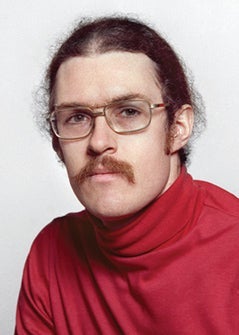
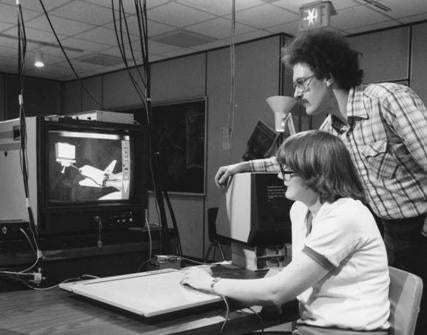
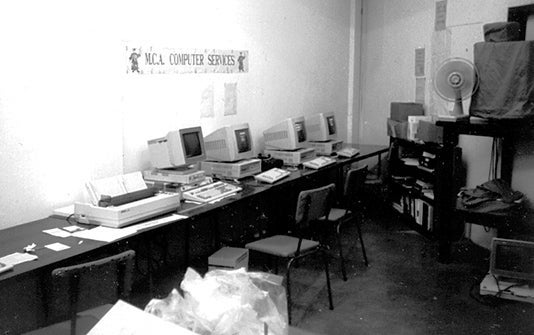
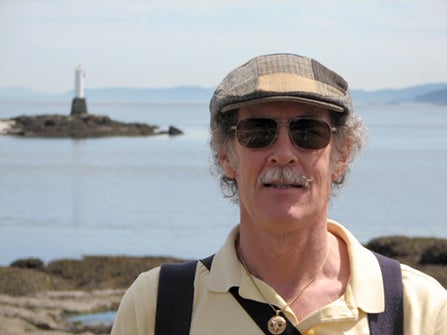
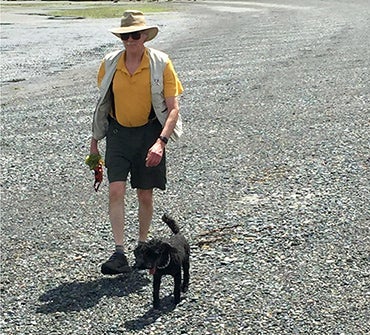
Please click on an image for a description.
His home was filled with books and computers. Always the tinkerer, he took delight in figuring out how to automate just about anything one could imagine. During a two-year leave from university starting in the early 1990s, John served in the U.S. Peace Corps in Malawi, where he helped introduce computers into the local school system. In recent years he was a volunteer driver for GERTI, Gabriola Island’s community bus service. Throughout his life he closely followed current events and kept abreast of a wide range of topics in science and technology. He could often be heard quoting from Shakespeare. A favourite was Glendower’s “I can call the spirits from the vasty deep” and Hotspur’s reply “Why, so can I, or so can any man; But will they come, when you do call for them?” from King Henry IV, Part 1, of course spoken in an appropriate stage voice.
John’s interests in computer science ranged from the theoretical to the practical, focusing at first on formal language theory and then on computer graphics, especially techniques for accurate colour reproduction and the use of spline mathematics to model and render curved lines and surfaces for computer-aided design and animation. In addition to authoring or co-authoring a number of scholarly research papers and a graduate textbook on splines, he was a devoted teacher in a variety of courses. In this role he mentored many graduate and undergraduate students. His PhD dissertation involved formal language theory. John taught a course in that for a number of years, showing up for the first lecture in a tuxedo with white gloves, befitting the topic. In the later years of his career he taught a number of courses designed to introduce non-majors to the art and practice of computer programming.
He was a co-founder of the Computer Graphics Laboratory at the University of Waterloo, and he served in a number of leadership roles in the Association of Computing Machinery’s Special Interest Group on Computer Graphics and Interactive Techniques (ACM SIGGRAPH), including Co-Chair of the SIGGRAPH ’83 conference, Editor-in-Chief for the SIGGRAPH Newsletter, and Editor-in-Chief of the journal ACM Transactions on Graphics. He was a tireless proof reader. Many students came to understand that their papers would be returned covered in red ink with John’s suggestions for better grammar and clearer, more precise wording.
John brought this same dedication and attention to detail to his own work, as a researcher, as a teacher, and as an administrator. John was not averse to challenging authority, although he did so only when suitably provoked. Upon being informed that the university thought it best to have an in-house maintenance contract for the lab’s half-a-million-dollar computer, he sent off a memo that simply said “Our lab recently had four RS-232C cables made in-house. None of them worked. A VAX 11/780 is significantly more complex than an RS-232C cable. Need I say more?” The lab was allowed to contract out for maintenance.
Generations of students benefited from his guidance and wisdom. One student remembers John “in my very short list of favourite professors, and later friends. When I think of John the word ‘genuine’ comes to mind. He loved to help. He loved to share. Despite his great intellect there was zero pretentiousness, zero hubris. It was a gift to know him. . . . John and others made the environment where we could thrive.” Another student recalled “I think I came away with as many valuable life lessons as academic. Those were very special years to me, in large part due to the warmth and spirit of John.”
John was an avid fencer who continued in the sport after university. He fenced competitively while in Oakland. For a while he coached the fencing club at the University of Waterloo after he moved to Canada. For many summers he and his parents and sister vacationed with their boat in the waters off the San Juan and Gulf Islands between Washington State and British Columbia. He was an avid Linda Ronstadt fan. He enjoyed good food and good wine (except for asparagus) although after suffering a heart attack in the mid-1990s he modified his diet and in typical John fashion followed a strict regimen where he meticulously measured his portions and tracked his vital signs. This despite his earlier protestation to his mother that a nutritionally balanced meat-and-potatoes with vegetable dinner could be had by eating just steak one night, only potatoes the next night, and peas the third night.
Friends came to accept his many eccentricities and eventually ceased to question his love of Sherlock Holmes-style capes, Tilley hats, Birkenstock sandals worn with socks, and his ever-present Swiss Army knife and fully-loaded custodian’s key caddy attached to his waist-high belt. His friends’ children learned to appreciate his barking at them and his imitation of a wolf howling at the moon, although not so much in public gatherings.
John is survived by his sister Clarissa Jean Beatty and her husband Jim Pernetti, his nephew Trask Beatty-Pernetti, and his beloved poodles Misty and Sparky. He was predeceased by his mother and father, Dr. Clarissa Beatty and Judge John (“Jack”) Cabeen Beatty. Honouring his request, no memorial service will be held. Donations in his memory may be made to the Bill and Melinda Gates Foundation.




